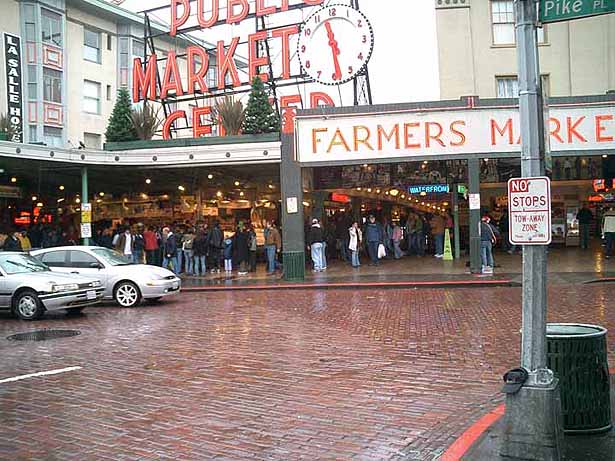A friend told me about a website that gives information about organic vs. conventionally grown food. She said it discusses which foods are most important to buy organic. I don't know if this is the site, but I found a posting on http://www.care2.com/greenliving/the-top-10-foods-to-eat-organically.html that discusses the top food to eat organically. It says it is excerpted from the book Your Organic Kitchen, by Jesse Ziff Cool.
Some of you (especially you gardeners) will know more about this than I do. The posting attributes this list to the Environmental Working Group, a non-profit research group based in Washington, D.C.
High-pesticide food: Strawberries
Healthy alternatives: Blueberries, raspberries, oranges, grapefruit, kiwifruit, watermelon
High-pesticide food: Bell peppers
Healthy alternatives: Green peas, broccoli, romaine, lettuce
High-pesticide food: Spinach
Healthy alternatives: Broccoli, Brussels sprouts, asparagus
High-pesticide food: Cherries
Healthy alternatives: Oranges, blueberries, raspberries, kiwifruit, blackberries, grapefruit
High-pesticide food: Peaches
Healthy alternatives: Nectarines, watermelon, tangerines, oranges, grapefruit
High-pesticide food: Mexican cantaloupe
Healthy alternatives: U.S. cantaloupe grown from May to December, watermelon
High-pesticide food: Celery
Healthy alternatives: Carrots, broccoli, radishes, romaine lettuce
High-pesticide food: Apples
Healthy alternatives: Watermelon, nectarines, bananas, tangerines
High-pesticide food: Apricots
Healthy alternatives: Nectarines, watermelon, oranges, tangerines
High-pesticide food: Green beans
Healthy alternatives: Green peas, broccoli, cauliflower, Brussels sprouts, potatoes, asparagus
Are there other foods that are more likely to be grown with and/or retain pesticides? What alternatives have you found?
A journey into the world of "real food" with Seattle-based journalist Rebecca Morris

Subscribe to:
Post Comments (Atom)
2 comments:
You're making me cringe to think what I have in my fridge (strawberries, celery, spinach, bell peppers, green beans). I have my vegie starts ready to plant. Rain or not, I'm getting out there today!
I know my naturopath has concured with this list (or one very similar), stating that, especially if one is sensitive to chemicals, it is really helpful to avoid the worst offenders.
For me, I also try to avoid those that are hardest to clean (raspberries come immediately to mind!) I don't eat 100% organic, but as close to it as I reasonably can.
Post a Comment